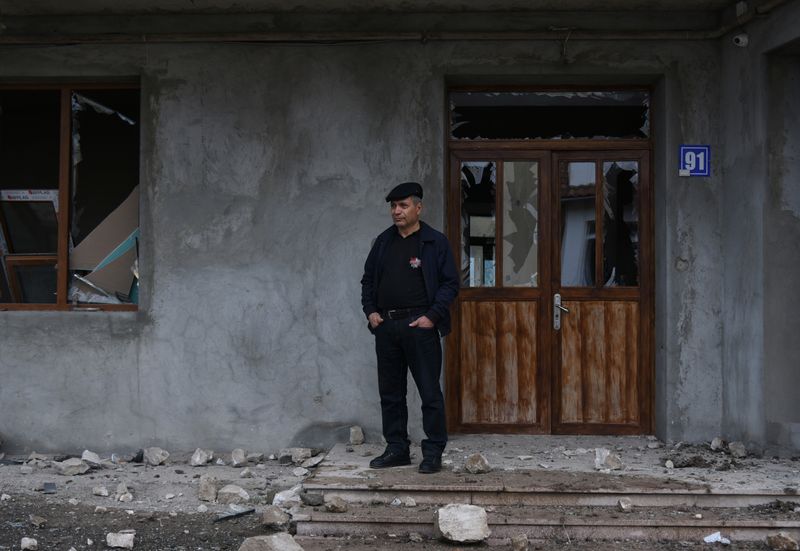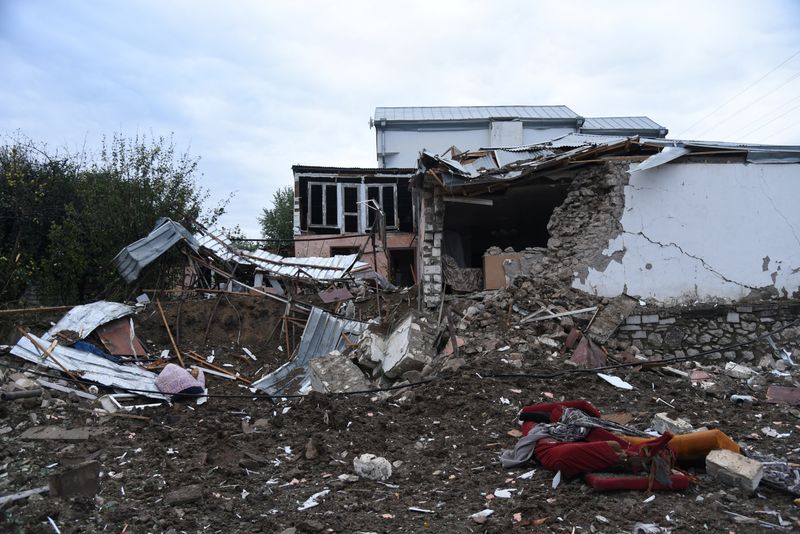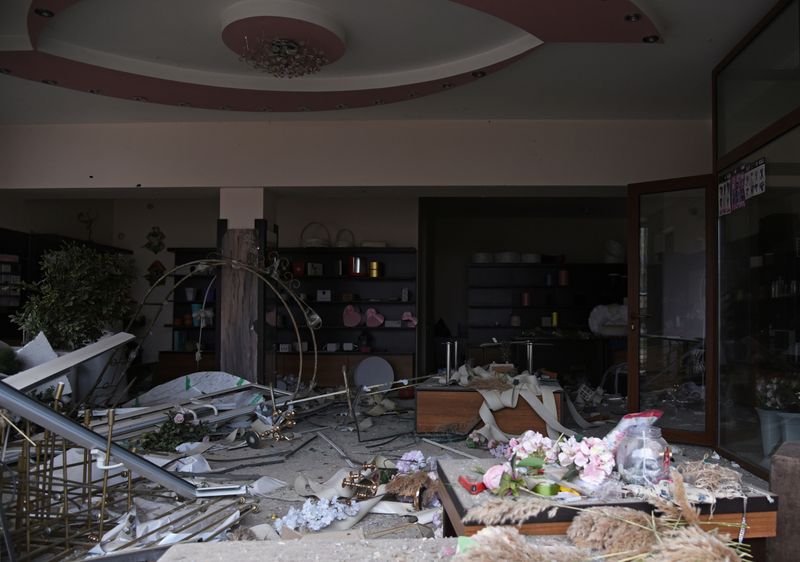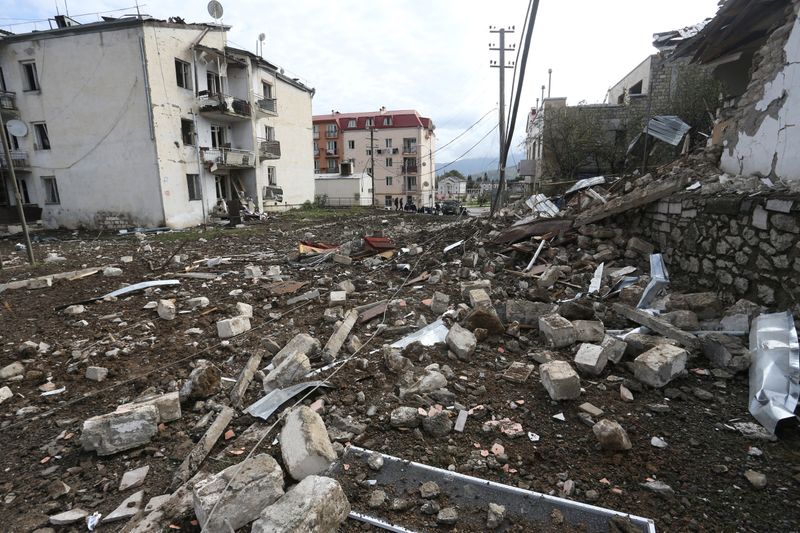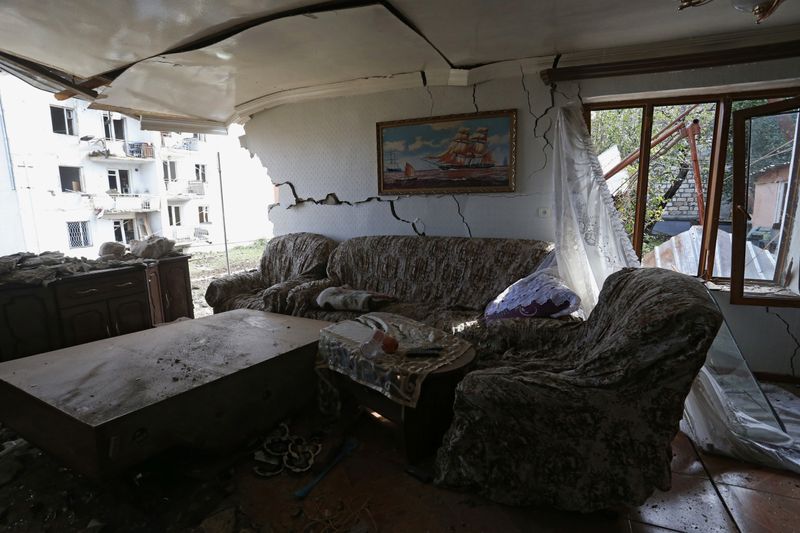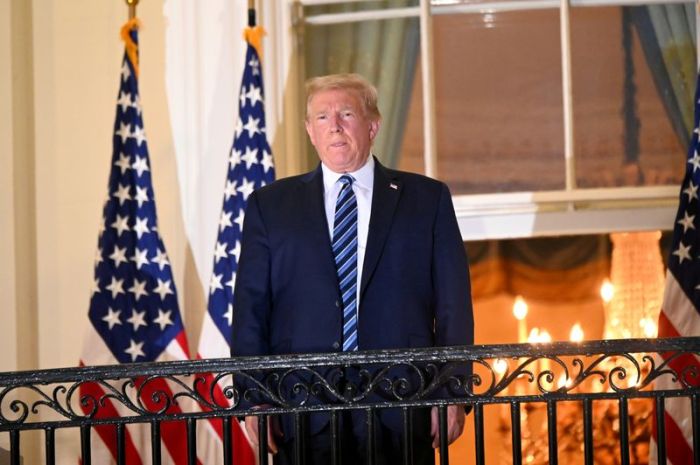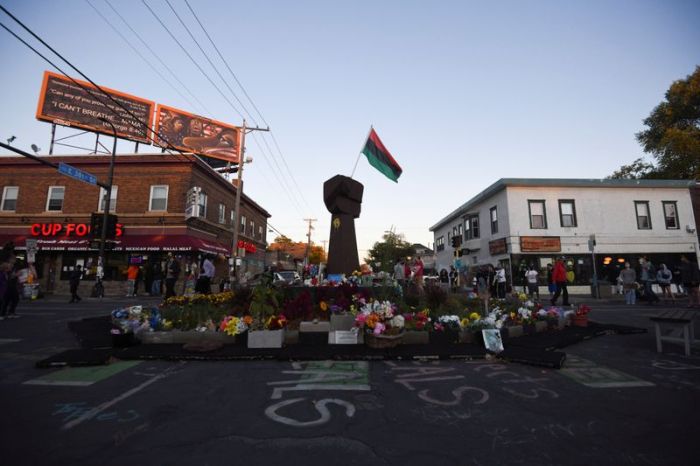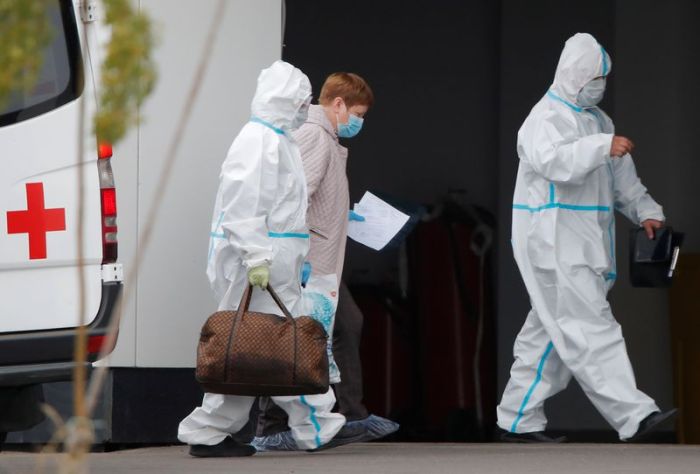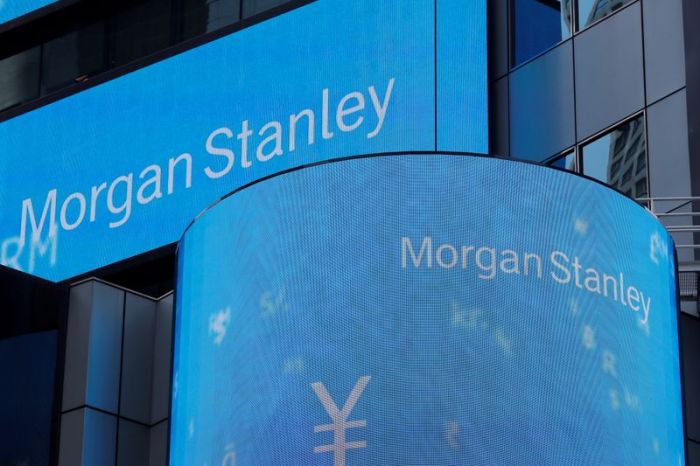YEREVAN/BAKU/GENEVA (Reuters) – Azerbaijan and ethnic Armenians fought with artillery and heavy guns on Thursday as the United States, France and Russia stepped up efforts to secure a ceasefire and avert a wider war in the South Caucasus.
The Kremlin said late on Thursday the foreign ministers of Azerbaijan and Armenia had been invited to take part in talks in Moscow on Friday, adding that the invitation followed calls with the two countries’ leaders.
“Following a series of telephone discussions with the President of Azerbaijan Ilham Aliyev and the Prime Minister of Armenia Nikol Pashinyan, the President of Russia calls for a halt to military actions in the Nagorno-Karabakh conflict,” the Kremlin said in a statement.
Russia’s foreign ministry said earlier on Thursday that it was in talks with Azerbaijan and Armenia to organise a possible meeting in Moscow.
There was no immediate reaction from Azerbaijan and Yerevan and officials in both countries were not available for comment.
The announcement marks the first result in international efforts to try to halt fighting which has killed at least 400 people since it broke out on Sept. 27.
Azerbaijan said the city of Ganja had come under fire, deep inside its territory. Ethnic Armenians who control the mountain enclave of Nagorno-Karabakh inside Azerbaijan said Stepanakert, its main city, and Shusha had been shelled by Azeri forces.
In a sign of growing alarm in the region, the head of a six-country military alliance led by Russia and including Armenia warned that the group could intervene if Armenian sovereignty were threatened.
The continued fighting and rising tension underlined the difficulties facing U.S., Russian and French officials meeting in Geneva to try to halt fighting.
Azeri Foreign Minister Jeyhun Bayramov was due to attend Thursday’s talks in Geneva, but no direct meetings have been scheduled between Armenia and Azerbaijan.
No information was available about results of his meeting with foreign diplomats.
Armenian Foreign Minister Zohrab Mnatsakanyan is expected to hold separate talks with U.S., French and Russian officials in Moscow on Monday.
Washington, Paris and Moscow are co-chairs of the Organization for Security and Co-operation in Europe’s Minsk Group that has led mediation over Nagorno-Karabakh since 1992.
“The position of the United States has been clear and has not changed: Both sides must cease hostilities immediately and work with the Minsk Group Co-Chairs to return to substantive negotiations as soon as possible,” a U.S. spokesman said.
Russian Prime Minister Mikhail Mishustin spoke by phone with his Azeri counterpart, Ali Asadov, on Thursday to underline the importance of restarting peace talks and establishing a ceasefire, Russian news agencies reported, citing the government.
INTERNATIONAL CONCERN
Under international law, Nagorno-Karabakh belongs to Azerbaijan, but it is populated and governed by ethnic Armenians and broke away in a 1991-94 war that killed about 30,000.
The renewed fighting has increased concern that Turkey, a close ally of Azerbaijan, and Russia, which has a defence pact with Armenia, could be sucked into the conflict.
The clashes have also increased worries about the security of pipelines in Azerbaijan that carry natural gas and oil to Europe, and Moscow fears Islamist militants will enter Nagorno-Karabakh and use it as a base for which to enter Russia.
Stanislav Zas, who heads the Collective Security Treaty Organisation (CSTO) that groups Russia and five other former Soviet republics, gave no details when he said it could intervene if Armenia’s sovereignty were threatened.
But he said the group did not welcome any actions by Turkey and other countries that were aimed at fostering peace.
Azerbaijan says 31 Azeri civilians have been killed and 154 wounded since Sept. 27 but has not disclosed information about military casualties.
Nagorno-Karabakh says 350 of its military personnel and 20 civilians have been killed.
Azeri President Ilham Aliyev’s main demand for a ceasefire is for Armenia to set a timetable for a withdrawal from Nagorno-Karabakh and surrounding Azeri territories.
Armenia has ruled out a withdrawal from territory it considers its historic homelands. It has also accused Turkey of military involvement in the conflict and sending in mercenaries, allegations denied by Ankara.
In other fallout from the conflict, Armenia fired its National Security Service chief without giving a reason, and Azerbaijan recalled its ambassador to Greece for consultations – a tit-for-tat move after Athens withdrew its own envoy, saying Azerbaijan had accused it of tolerating militants on its soil.
(Additional reporting by Tuvan Gumrukcu in Ankara and by Anton Kolodyazhnyy and Maria Tsvetkova in Moscow; Writing by Margarita Antidze and Timothy Heritage; Editing by Hugh Lawson, Lisa Shumaker and Richard Pullin)

